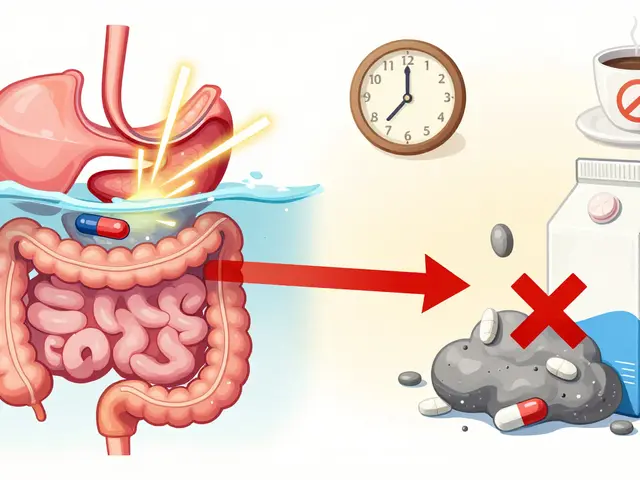Ovulation: What It Is and Why It Matters
When talking about ovulation, the release of a mature egg from the ovary during each menstrual cycle. Also known as egg release, it marks the window when conception is most likely. Understanding this short‑lived event helps you plan family goals, track health, and spot potential problems early.
How Ovulation Connects to the Menstrual Cycle and Hormones
The menstrual cycle, a roughly 28‑day rhythm of hormone changes, uterine lining buildup, and egg development sets the stage for ovulation. Mid‑cycle, the luteinizing hormone, a pituitary‑derived surge that triggers the follicle to burst spikes, prompting the egg to exit. Without this LH surge, the egg stays locked inside, and fertility drops. This hormone‑driven step links directly to fertility, the ability to conceive naturally or with assistance, because timing intercourse or insemination around the LH peak boosts chances of success.
Many people rely on ovulation test kits, at‑home urine strips that detect the LH surge to pinpoint the fertile window. The kits turn a line darker when LH spikes, giving a clear visual cue. While they’re simple, using them alongside basal body temperature tracking creates a more reliable picture of when ovulation actually occurs. This combo helps both couples trying to conceive and those avoiding pregnancy.
Beyond timing, lifestyle factors influence ovulation quality. Regular moderate exercise, balanced nutrition, and adequate sleep keep hormone levels stable. On the flip side, high stress, extreme weight loss, or excessive alcohol can blunt the LH surge, leading to missed or delayed ovulation. Knowing these links lets you make tweaks before they affect your cycle.
If you suspect irregular ovulation—like missed periods, very short or long cycles, or unexplained infertility—talking to a healthcare provider is key. Doctors might order blood tests to measure estrogen, progesterone, and LH levels, or use ultrasound to watch follicle growth. These diagnostics connect the dots between the hormonal story and the physical release of the egg.
Some medications and supplements also play a role. For example, clomiphene citrate can induce an LH surge in women with ovulatory disorders, while vitamin D and zinc support hormone production. Understanding which interventions work best involves matching the right drug to the specific hormonal imbalance.
Finally, remember that ovulation isn’t an isolated event; it’s part of a broader reproductive system that includes the uterus, fallopian tubes, and cervix. Issues in any of these areas—like blocked tubes or cervical mucus problems—can still impede fertilization even if ovulation is perfect. A holistic view helps you address all pieces of the puzzle.
Below you’ll find a curated set of articles covering everything from medication comparisons to practical health tips. Whether you’re tracking your cycle, exploring fertility treatments, or just curious about how hormones work, the collection offers clear, actionable info to help you move forward.

How Hormonal Imbalances Disrupt Ovulation and Menstruation
Explore how hormonal imbalances affect ovulation and menstruation, learn the key hormones involved, common disorders like PCOS or thyroid disease, and practical steps to restore balance.
read more




